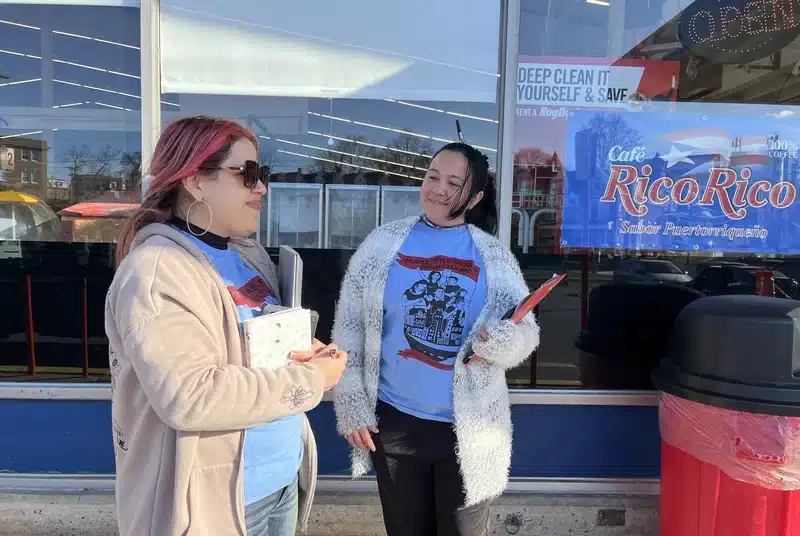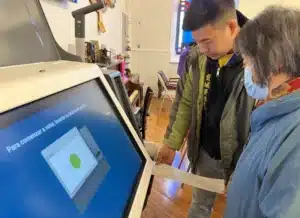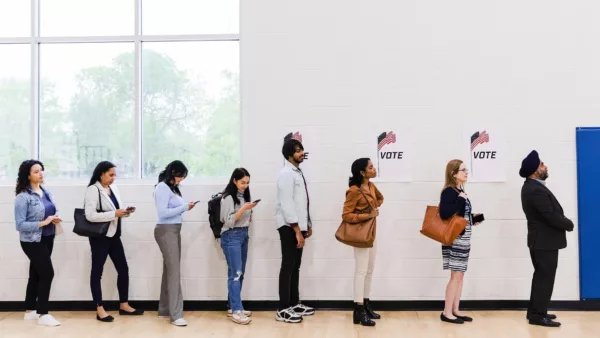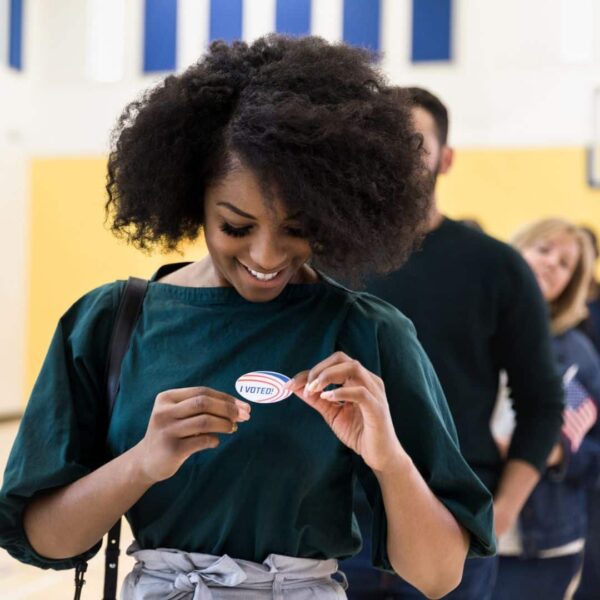
NPR: Why there's a long-standing voter registration gap for Latinos and Asian Americans
In a pivotal election year, U.S. democracy continues to face a persistent challenge among the country’s electorate — gaps in voter registration rates between white eligible voters and eligible voters of color.

Source: U.S. Census Bureau, Current Population Survey
Credit: Hilary Fung/NPR
For years, the shares of Black, Asian and Latino citizens age 18 or older signed up to cast ballots have trailed behind that of white adult citizens, according to the Census Bureau’s Current Population Survey.
And while the estimated registration rate for Black eligible voters has stayed closer to (and, in 2012, even surpassed) the rate for white eligible voters, the rates for Asian Americans and Latinos — who make up the country’s top two fast-growing electorates by race or ethnicity — have remained among the lowest of the racial and ethnic groups in the United States.
Based on national estimates from the last two federal election years, the disparity in registration rates between white and Asian eligible voters is around nine percentage points. Between white and Latino eligible voters, the gap is about 13 percentage points.
Long-standing barriers to voter registration have made it difficult to close these gaps, and dedicated investment is needed to ensure fuller participation in elections and a healthier democracy, many researchers and advocates say.
“This is something that needs to be paid attention to sustainably all the time,” says Rodrigo Dominguez-Villegas, director of research at the UCLA Latino Policy & Politics Institute. “It is not something that should be paid attention to only when we are getting close to a presidential election.”
For some, economic needs overshadow political participation
Many Latino and Asian American eligible voters are naturalized U.S. citizens, and that, Dominguez-Villegas says, can make it more difficult to figure out how to get registered to vote, especially in states that don’t offer automatic voter registration or same-day registration.
“They need to learn the ropes of the political system at the same time as they are learning everything else about living in a different country,” says Dominguez-Villegas.
Dominguez-Villegas, who co-wrote a report about the lower voter registration rate for Latinos in the 2020 elections, points out that while more states started allowing early in-person and mail voting after the COVID-19 pandemic began, it can be hard for some eligible voters to “prioritize political participation over their day-to-day economic needs” when they’re working lower-wage jobs.
“There are some types of jobs that might be preventing people from being able to even take time off work to vote. And so when people know that they’re not going to be able to exercise the right to vote, they are a lot less inclined to even register for it,” Dominguez-Villegas says.
It’s a kind of barrier that Vivian Chang, executive director of the Philadelphia-based advocacy group Asian Americans United, says community organizers have encountered when trying to promote voter registration in and around the city’s Chinatown neighborhood.”
A lot of folks are just struggling to survive,” Chang says. “Voting is a very separate thing. And honestly, it’s a part of an institution that for them is not one that necessarily values them.”





